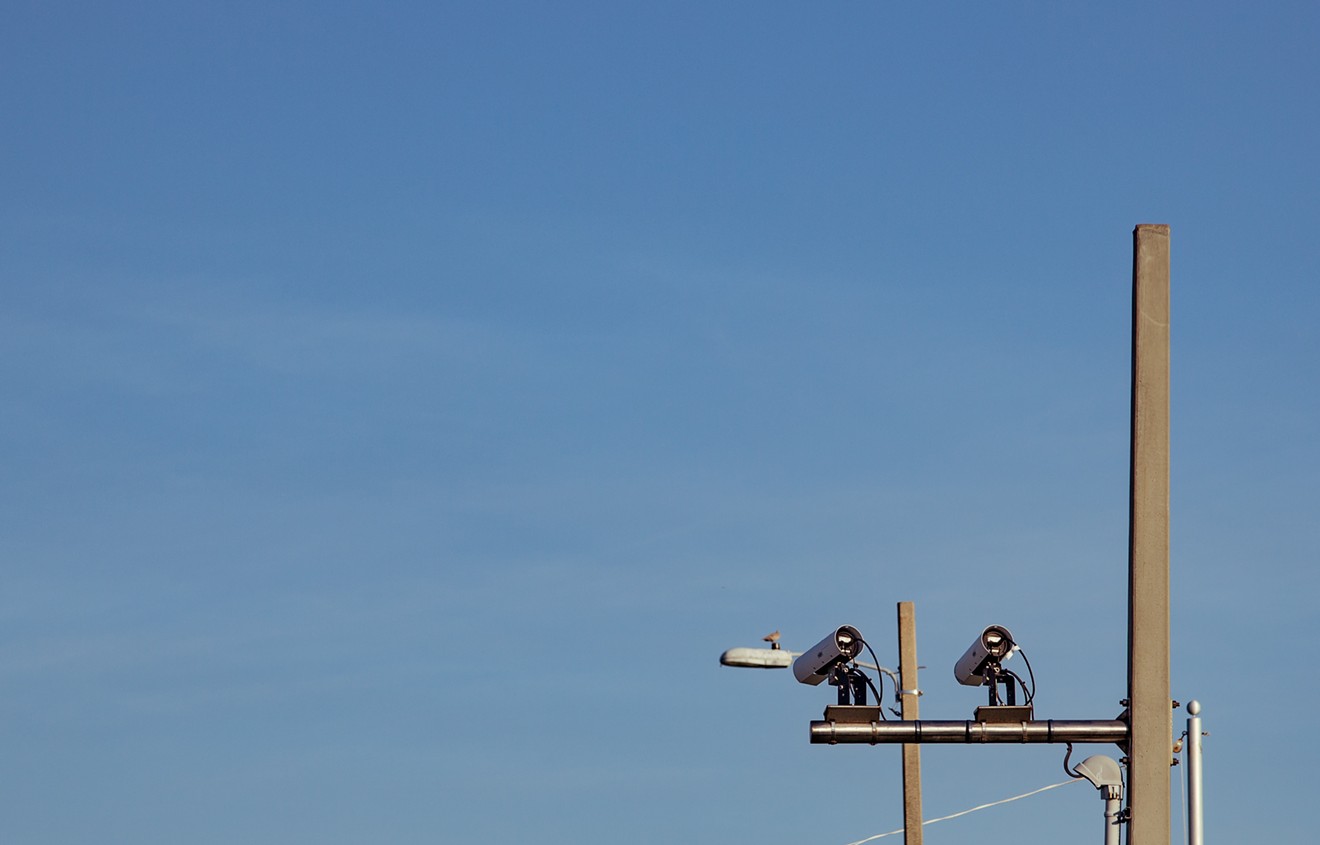Last Wednesday, the U.S. Supreme Court heard a case about whether cops are allowed to access cell-phone location data without a warrant — the latest in a growing legal battle over the limits of police surveillance using new technology.
Amid that debate, Miami cities have increasingly adopted one piece of tracking tech: Automatic license-plate readers, which log every car cruising on a stretch of road. And no city had been quite as enthusiastic about the readers as Doral — home to a major military command and one of President Donald Trump's crown-jewel golf courses.
For the past seven years, Doral has been quietly installing a plate surveillance grid across almost the entire city. According to Maggie Santos, a spokesperson for the city, Doral has at least 99 operational plate readers installed around the city, with more on the way. The city has plans for 143 plate readers, and Santos says the city expects to install even more by September 2020.
What exactly is Doral doing with all of that data about everyone driving in the city? That's the key question police and city officials need to be upfront about to avoid violating the First and Fourth Amendments by stifling free speech or covertly tracking political and religious events.
"That's something we've been very loud about," says Jackie Azis, a staff attorney with the American Civil Liberties Union of Florida. "They need to be open about their use."
Doral began acquiring readers in 2010 after receiving a $405,000 U.S. Department of Justice C.O.P.S. "Secure Our Schools" grant — which required matching city funds — to install readers around certain schools, according to city documents.
Later, city documents show, Doral contracted with the now-defunct Miramar-based Aware Digital for $1.1 million to install readers, according to Santos. However, city documents also show that after payments to Aware exceeded $1.85 million, the city conducted an investigation and found that less than 2 percent of the company's readers were functional, which exposed the city to "substantial risk of having to reimburse the federal government for Department of Justice (DOJ) grant funds that were supposed to have been expended for a complete project."
The city obtained a time extension with the DOJ to complete the reader program and sued Aware to recover the funds, according to city documents. The owner of the Shell gas station at 7900 NW 36th St. even agreed to provide power for the reader system for ten years at a cost of $100 per year.
In 2015, the city found a new vendor, the Livermore, California-based Vigilant Solutions, which also develops facial-recognition software.
Those cameras will be deployed to at least 26 intersections in the city, with as many as 14 readers at one intersection.
So why does a city measuring only 15.18 square miles need so many high-tech cameras? Located within Doral's city limits are the Trump National Doral Miami resort, which is owned by the president's family, a Federal Reserve bank, and U.S. Southern Command.
Though the city hasn't specified how it plans to use all the data it's gathering about who's driving around town, officials say the information will be kept for years. According to Santos, Vigilant retains license-plate pictures for up to three years.
The tools can capture a huge amount of information. Miami Beach has used license-plate readers during special events such as Memorial Day weekend on the causeways and last year captured images of more than 11 million plates.
The technology concerns advocates such as Azis, who warns that the "Orwellian" readers are expensive and require strong, clear regulations to ensure they aren't misused.
"The onus is on the local government to put in local regulations," Azis says.
[
{
"name": "Air - MediumRectangle - Inline Content - Mobile Display Size",
"component": "19274298",
"insertPoint": "2",
"requiredCountToDisplay": "2"
},{
"name": "Editor Picks",
"component": "17482312",
"insertPoint": "4",
"requiredCountToDisplay": "1"
},{
"name": "Inline Links",
"component": "18711090",
"insertPoint": "8th",
"startingPoint": 8,
"requiredCountToDisplay": "7",
"maxInsertions": 25
},{
"name": "Air - MediumRectangle - Combo - Inline Content",
"component": "17482310",
"insertPoint": "8th",
"startingPoint": 8,
"requiredCountToDisplay": "7",
"maxInsertions": 25
},{
"name": "Inline Links",
"component": "18711090",
"insertPoint": "8th",
"startingPoint": 12,
"requiredCountToDisplay": "11",
"maxInsertions": 25
},{
"name": "Air - Leaderboard Tower - Combo - Inline Content",
"component": "17482313",
"insertPoint": "8th",
"startingPoint": 12,
"requiredCountToDisplay": "11",
"maxInsertions": 25
}
]











